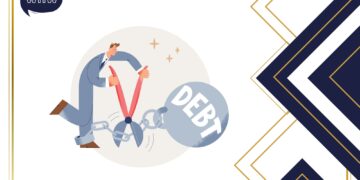Which one is better: Long-term or Short-term investments?

Short-term investors are those who invest in financial instruments that are intended to be held in an investment portfolio for less than a financial year. In many cases, such investments are only held for a few weeks, or in the case of traders, perhaps even just a few hours. Long-term investors, on the other hand, invest in long-term financial instruments that they hold for more than 5-8 years. However, depending on who you ask, the definition can change. Some financial institutions define long-term as anything longer than a year, but the 1-5 year investment window is often considered medium-term investing.
What is better? Short-term or long-term investments?
Which investment strategy is better for you, short-term or long-term, depends on your financial objectives. Day traders’ stock holdings are considered short-term investments, but pension funds stock holdings are considered long-term investments; the difference is in the investor’s attitude.
The differences between short-term and long-term investments
Risk profile
Short-term investors prefer investments with a higher risk/reward ratio, such as stocks. Some stocks can be pretty volatile, those from the field of technology or cryptocurrencies. These can offer the potential for quick profits, but of course, the value of stocks can go down and up.
Passive vs active
Short-term investors tend to be more active in managing their portfolios as they frequently make changes to outperform the market. Managing assets passively is more common among long-term investors.
Volatility
Short-term investors tend to be open to more volatile investments than long-term investors because short-term traders generally rely on the volatility of stocks to make profits.
Investment objectives
Investors who pursue immediate goals are more likely to choose short-term investments. If you are a trader who relies on investing to make a living, your goal will be generating income within the next week or month. Other short-term investors with a fund for an acquisition, such as: For example, if you want to invest in a car or a vacation, you will generally opt for short-term investments. Those looking to generate income for retirement will opt for longer-term options.
Long-Term Investment Opportunities in Ireland
Real Estate Market
Ireland’s real estate market has historically been a cornerstone for long-term investors. The demand for housing and steady appreciation presents an enduring opportunity. Urban development projects and infrastructure initiatives contribute to the long-term growth potential.
Renewable Energy Sector
Ireland’s commitment to renewable energy creates a compelling long-term investment opportunity. With ambitious targets for sustainable energy production, investments in wind, solar, and other renewable projects align with environmental goals and long-term financial returns.
Technology and Innovation
Ireland’s reputation as a tech hub positions technology investments as long-term opportunities. With a thriving tech ecosystem, companies engaged in innovation, artificial intelligence, and fintech present avenues for sustained growth.
Healthcare and Biotechnology
The healthcare and biotechnology sectors in Ireland continue to flourish. Long-term investors may find opportunities in pharmaceutical companies, medical research, and healthcare infrastructure projects as the population ages and healthcare needs evolve.
Education and EdTech
Ireland’s commitment to education excellence makes the sector a promising long-term investment. Investments in educational institutions, e-learning platforms, and EdTech companies align with the country’s emphasis on fostering a skilled and educated workforce, creating sustainable opportunities for growth.
Tourism and Hospitality
Ireland’s picturesque landscapes and rich cultural heritage make tourism a resilient long-term investment. With a focus on sustainable tourism, investments in hospitality, eco-friendly accommodations, and experiential travel services contribute to the long-term growth potential of this sector.
Food and Agribusiness
Ireland’s reputation for high-quality agricultural products positions the food and agribusiness sector as a robust long-term investment. As global demand for sustainable and locally sourced food rises, investments in agrotech, organic farming, and food processing can yield enduring returns.
Sustainable and Socially Responsible Investing
The global shift toward sustainability and social responsibility presents long-term investment opportunities in Ireland. Investments in companies dedicated to environmental and social causes and those with strong ESG (Environmental, Social, Governance) practices align with evolving consumer preferences and international trends.
Financial Services and Fintech
Ireland’s status as a global financial hub creates long-term investment opportunities in the financial services sector. Fintech companies, traditional banking institutions, and innovative financial solutions contribute to the long-term growth of this dynamic industry.
Manufacturing and Export
Ireland’s strategic location and business-friendly environment make manufacturing and export-oriented industries attractive for long-term investors. Investments in advanced manufacturing, export-oriented businesses, and supply chain optimization can tap into Ireland’s position as a global trading hub.
Stock Market Trading
Ireland’s stock market, represented by the Irish Stock Exchange in Dublin, offers short-term trading opportunities. Agile investors can capitalize on price fluctuations in individual stocks, especially in response to market news and events.
Cryptocurrency and Fintech
The dynamic landscape of fintech and the emergence of cryptocurrency present short-term investment opportunities. However, investors should cautiously approach these markets, given their inherent volatility.
Event-Driven Investments
Short-term opportunities often arise from event-driven situations. Corporate events, mergers and acquisitions, or changes in government policies can create market movements that short-term investors can exploit.
Currency Trading
Given Ireland’s position in the Eurozone, currency trading can be a short-term strategy. Fluctuations in the Euro exchange rate against other currencies provide opportunities for investors looking to capitalize on currency movements.
Commodities Trading
Short-term investors may find opportunities in commodities trading, leveraging market volatility for precious metals, agricultural products, or energy resources. Monitoring global economic conditions and geopolitical events can help identify short-term trends in commodities prices.
Initial Public Offerings (IPOs)
Ireland’s stock market occasionally witnesses the debut of new companies through IPOs. Short-term investors may explore opportunities in participating in the early stages of these offerings, aiming to capitalize on potential price fluctuations shortly after a company goes public.
Short-Term Bonds and Fixed-Income Securities
Short-term bonds and fixed-income securities offer alternatives for investors seeking stability and liquidity in the short term. Treasury bills or corporate bonds with shorter maturity periods can provide relatively secure investment options for a short-term strategy.
Sector-Specific Opportunities
Short-term investors can focus on specific sectors that show promise for rapid growth or volatility. This might include industries experiencing sudden demand surges, regulatory changes, or technological advancements, providing short-term windows for profitable investments.
Real Estate Flipping
Engaging in real estate flipping, where properties are purchased, renovated, and sold quickly for a profit, can be a short-term investment strategy. This requires a keen understanding of the local property market and the ability to identify undervalued properties.
Short-Term Peer-to-Peer Lending
The peer-to-peer lending market provides opportunities for short-term investments. By lending money to individuals or small businesses through online platforms, investors can earn returns in a relatively short period, although this comes with associated risks.
Options and Derivatives Trading
Short-term investors with a higher risk appetite may explore options and derivatives trading. These financial instruments allow investors to speculate on the future price movements of assets, offering potential for short-term gains but requiring a sophisticated understanding of the market.
Basic rules for successful long-term investing
In order for your portfolio to grow and generate stable profits over many years, you must adhere to certain rules and principles. Here are the key rules for long-term investors:
Invest in proven and stable
Choose reliable companies. Long-term investments require stability. Betting on companies with a good history and reliable reputation minimizes risks.
Don’t try to guess the market
Make regular investments. Instead of trying to guess the best time to buy stocks, invest regularly. This will allow you to avoid losses due to an incorrectly chosen moment to enter the market.
Diversity is the key to success
Combine assets. Different types of assets behave differently in different economic periods. A combination of stocks and bonds can help balance risk and potential return.
Diversify within asset classes. You shouldn’t invest all your money in one company or even one industry. Splitting investments among different companies or industries reduces risk and makes the portfolio more resilient to economic shocks.
Long-term and short-term investors alike can take advantage of the diverse range of opportunities that are available in Ireland’s investment landscape, which is defined by a combination of innovation and established practices. It is essential to have a thorough awareness of the subtleties of each opportunity, regardless of whether you are interested in the long-term growth potential of real estate or the dynamic possibilities with fintech.
The most important thing is to make sure that your investment strategy is in line with your financial goals, your level of comfort with risk, and the specific dynamics of Ireland’s ever-changing economic landscape. During the process of navigating these investment opportunities, it is important to keep in mind that a well-informed approach is the compass that will lead you through the vast array of opportunities that are available on the Emerald Isle.





